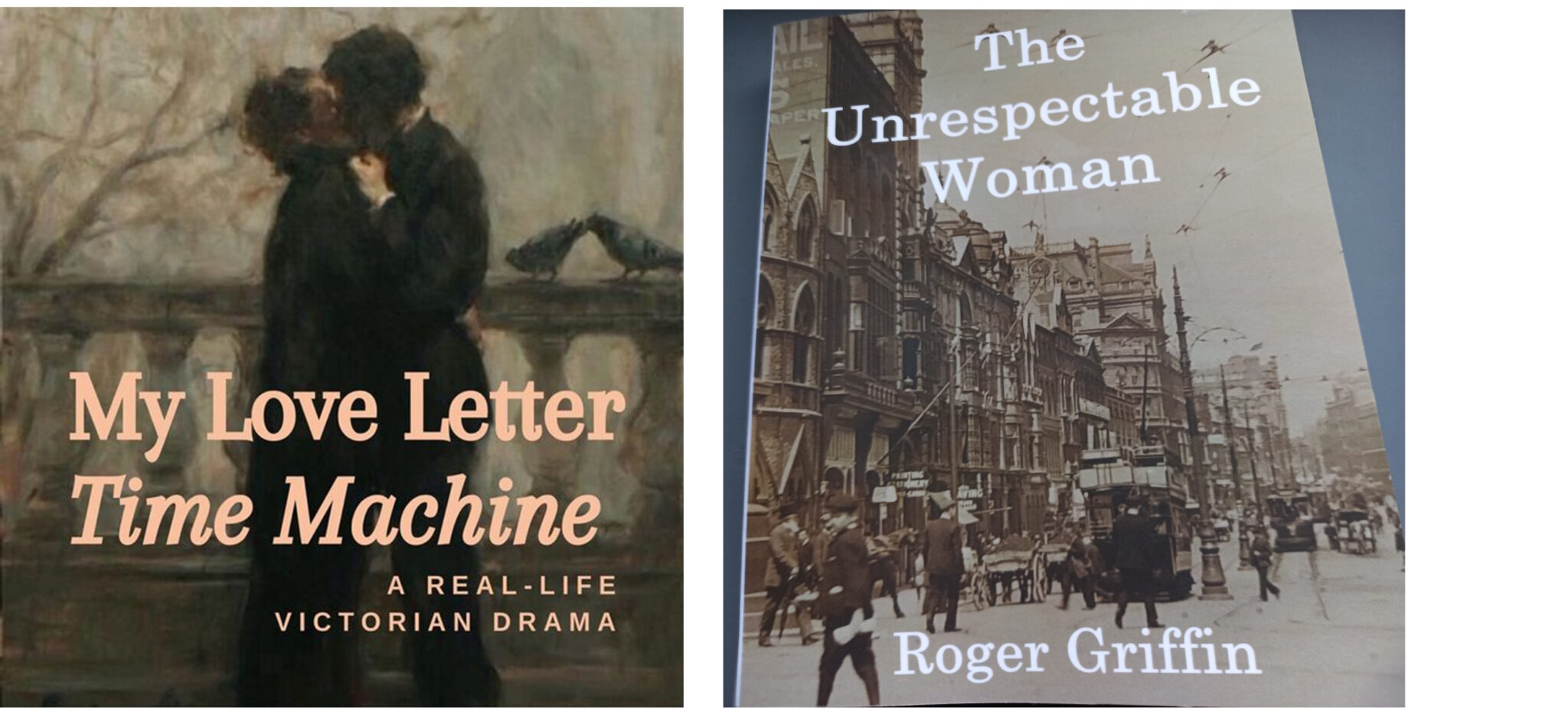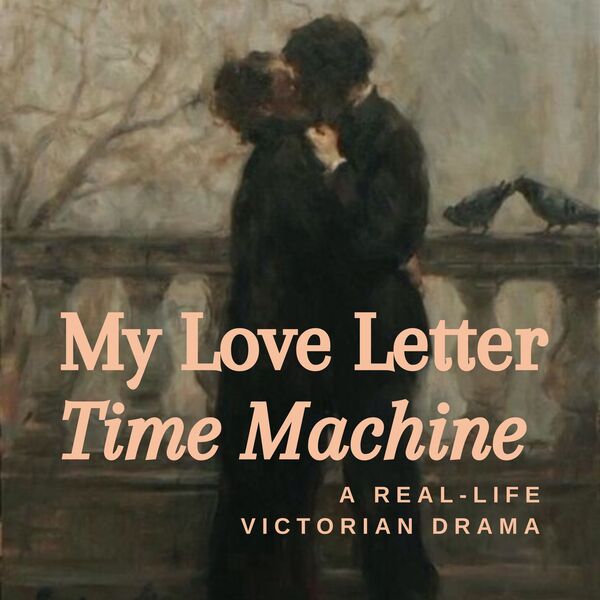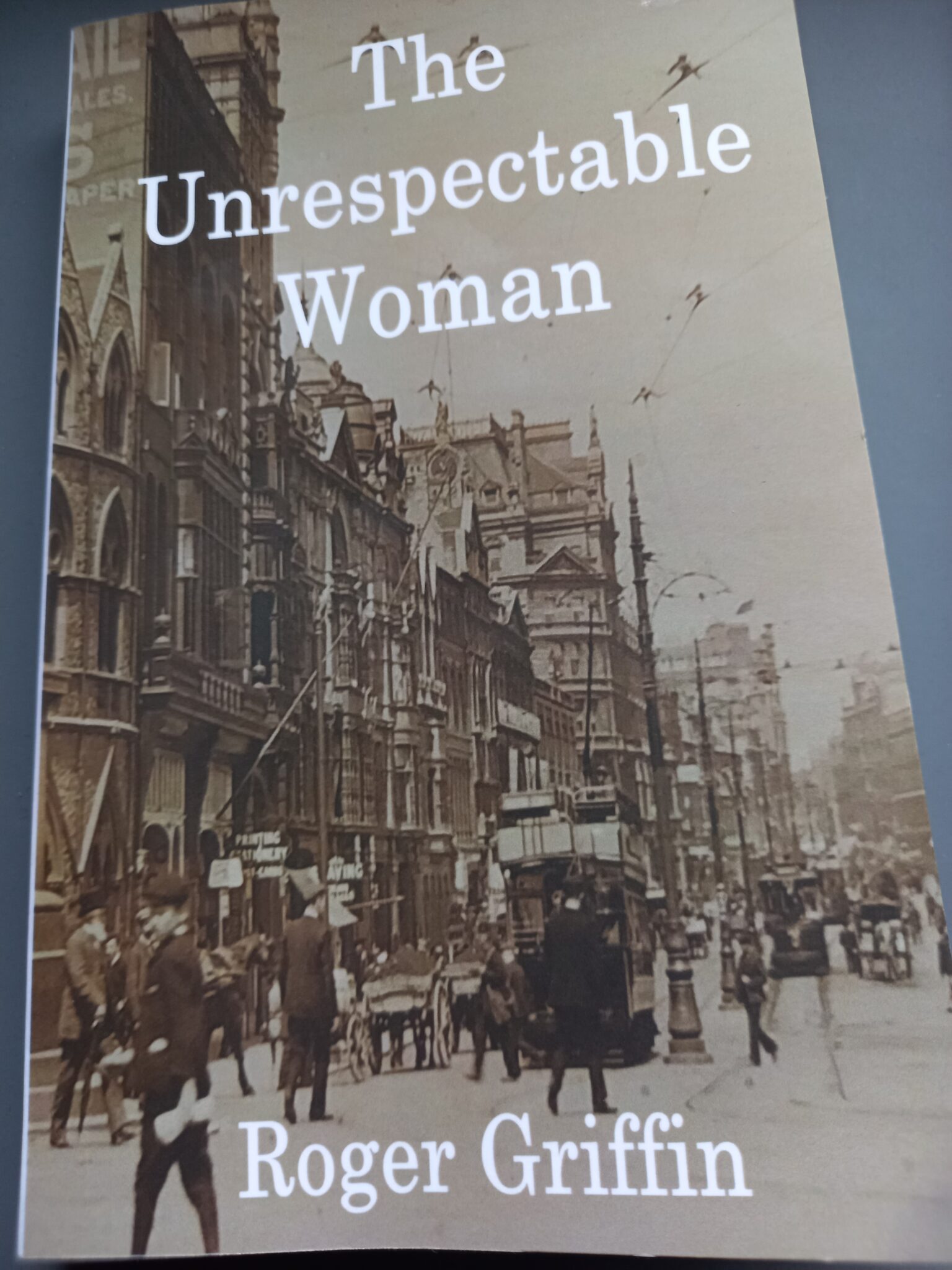
If you’ve ever checked my bio on social media, it usually includes the sentence “…also loves pre-1660 British history…”. I love medieval and early modern British history (my degree was in the latter), and these days I’m particularly interested in the early medieval period, and medieval Wales (specifically, the Llywelyn’s). Why no interest past 1660? Well, the flippant answer is they stopped chopping monarchs’ heads off then! In general, post 1660 to the early 20th century, just hasn’t interested me that much. In fact, I only studied the early modern period because that’s the oldest British history that was on offer at my Australian university. My first love was and is, medieval British history. Well, plants, and medieval British history.
However, in the last year, I’ve been captivated by two decidedly different post-1660 stories. In time sequence, the podcast My Love Letter Time Machine (c.1878-1882), and a book set in Edwardian Cardiff, The Unrespectable Woman.

This podcast tells the story of two working class people from Sheffield, Fred Shepherd and Janie Warburton. Ingrid Birchell Hughes, who is our host, is their great-great grand daughter. It uses the surviving correspondence between them (a rare occurrence in itself), to weave the development of their relationship and eventual marriage.
What I love about the podcast is how Ingrid uses the letters to not just talk about their romance, but about the social world in which they lived in the latter half of Victorian Britain. We learn about the Sheffield steelworks, partner abuse and divorce (not Fred and Janies, but Janie’s sister, Emma’s), vinegar valentines, popular entertainment, the daily running of a pub, the adult education movement, and even the world’s first floodlit football match. And we sometimes gain a very intimate and amusing view on Fred and Janie’s life, challenging the stereotype of sexless Victorians.
Ingrid draws you into Fred and Janie’s world with her warm humour and gentle storytelling, and I find I’m always looking forward to the next installment. Like a soap opera, only it’s a true story. This is social history, on a scale we can all relate to. I promise, you’ll be a fan in no time.

The events in the book take place less than 30 years after the story of Fred and Janie, but it’s a world apart. This is a novel based on the true story of the last woman to be hanged in Wales, Leslie James (aka Rhoda Willis). And it brings in some of the life of Hester (Hettie) Millicent Mackenzie, the first female professor of a fully chartered university in the UK, and two of the Pierrepoint brothers (famous in their time as hangmen).
The title of the book is a central theme to the story. Hettie, a white middle class woman, is deserving of respect. Leslie, is a white working-class woman who struggled to survive, is not. One had all the opportunities a woman of her class might have enjoyed, the other, simply by circumstance, was denied these same opportunities. Respect (and justice, for that matter), who gets it and who doesn’t, is also touched upon with some of the other women we briefly meet. And the role of executioner, which may have be deemed an important part of Edwardian ‘justice’, was however given little respect.
I don’t want to give too much away, but you can see that things will not end well. What I love about this book, is not just Roger’s deft handling of sensitive topics, but that he grabs you from the beginning, and you find yourself racing through the book. In fact, I read it a second time because I felt I didn’t do the book justice in my first hurried reading.
I also love that Roger neither judges nor justifies Leslie’s actions (or inaction), but attempts to tell her story with, well, respect. Whilst Hettie probably never met Leslie in real life, the contrast between the two women’s lives helps give context to the position of women in Edwardian Britain. Those less well off, were judged more harshly, whilst also denied access to the same opportunities that would have enabled them to become respectable.
It turns out that there is life beyond 1660. When history is done this well, of any period or culture, it will draw you in, and the book and podcast do this in spades. I have no hesitations in recommending these to my readers. Sit in your garden with a cuppa and have a read when you’re taking a break, or a listen whilst doing some weeding. The near past, is just as fascinating as the medieval world.
To listen to the podcast, visit My Love Letter Time Machine which links to the various apps from where you can begin listening.
For the book, visit the Feed A Read website to buy The Unrespectable Woman. It’s also available on Amazon, but it’s more expensive there.
Disclaimer: Ingrid Birchell Hughes is a good friend, and Roger Griffin is the father of another good friend. If I didn’t like either the book or podcast, I wouldn’t have used my limited energy on writing these reviews. It’s a testament to Ingrid & Roger that I felt compelled to do so.